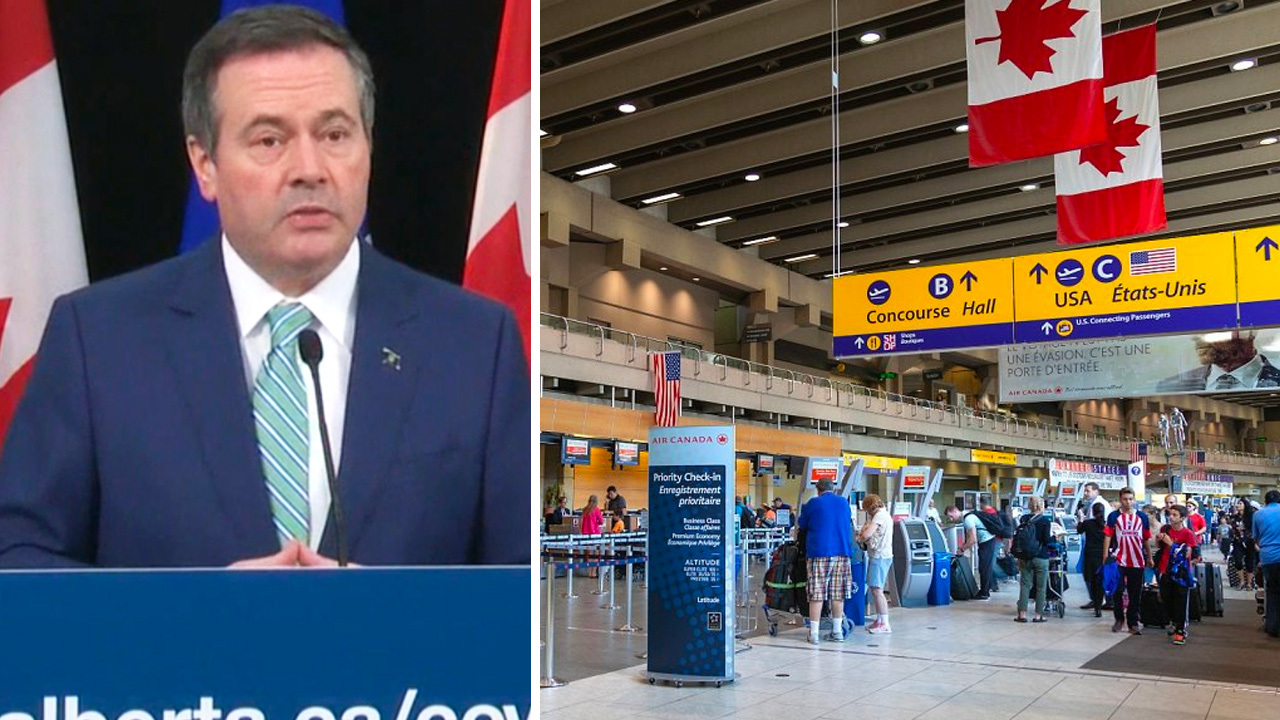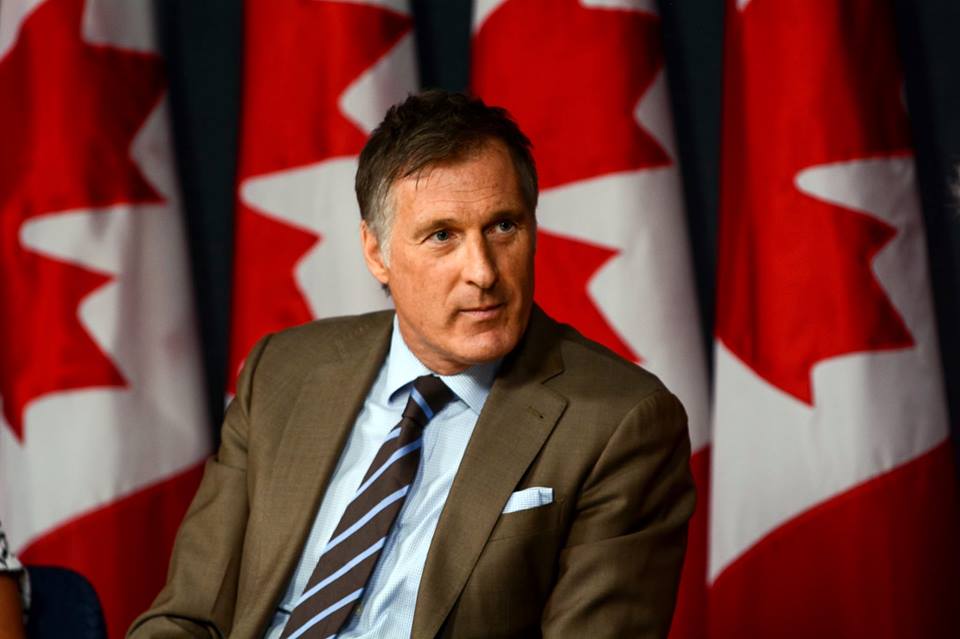As Alberta launches a pilot project to make it easier for Canadians who travel abroad to return home without quarantining, Premier Jason Kenney says it’s important to revitalize Canada’s tourism sector.
Under the pilot announced Thursday, anyone entering Canada at Calgary International Airport or Alberta’s Coutts border crossing starting Nov. 2 will be able to eschew the mandatory 14-day quarantine provided they test negative for COVID-19 on arrival and agree to a follow-up test six or seven days later.
For travellers who decline to participate, or those entering the country at other ports of entry, the 14-day quarantine is still in effect. The program doesn’t affect the federal government’s admissibility rules.
Alberta ministers, along with the CEOs of Westjet and the Calgary Airport Authority attended the announcement at Calgary International Airport, with Kenney joining by teleconference as he remains in self-isolation after having contact with a member of his cabinet who’s tested positive for COVID-19.
Kenney shared a grim picture of Alberta’s tourism sector, noting the importance of standing up for jobs that continue to be in jeopardy because of government policies.
Visitor spending in Alberta is expected to drop by 63 per cent to $3.5 billion for 2020, a decline Kenney attributes in part to quarantine and other government restrictions, such as the border closure.
“This has impacted countless jobs, from airline pilots and flight attendants and crews and dispatchers, ground personnel, ticket agents, tour operators and so many more. Behind every one of those jobs there is a family who’s facing uncertainty and a person who needs to pay their mortgage, or a parent who needs to put groceries on the table,” Kenney said. “That’s why we cannot turn our back on the travel industry, the tourism industry, and the Albertans whose lives have been thrown into upheaval as a result of the pandemic.”
Domestic recreational travel is still permitted to much of the country though public health guidance varies as to whether people should be partaking in it.
The Ontario government, for example, still tells people to “stay home as much as possible.”
Asked whether he wants to see Canadians visit Alberta, Kenney said the province is open for business.
“Alberta is an open and welcoming province,” he said. “The guideline is to limit travel to essential reasons but we have certainly welcomed tourists over the past several months, and we just ask if they come to Alberta that they follow the safety protocols that we have – the public health advice that we have in place. And I think this is an important point: we need to get not just international travel moving again, but safe domestic travel.”
Kenney added that Alberta has “resisted” pressure to close off its provincial borders as the Atlantic provinces have.
Anyone entering the ‘Atlantic Bubble’ – Prince Edward Island, New Brunswick, Nova Scotia or Newfoundland – must self-isolate for 14 days on arrival. Only pre-approved travellers, such as seasonal residents or essential workers, are permitted to enter.
While the bubble approach has kept case counts lower than elsewhere in the country, it has also “devastated” the provinces’ tourism industries, Kenney said.
Last week, Calgary-based Westjet cut its flights to four Atlantic cities while reducing frequency of service to the two remaining ones, Halifax and St. John’s.


